Character Letter for Court Template Example
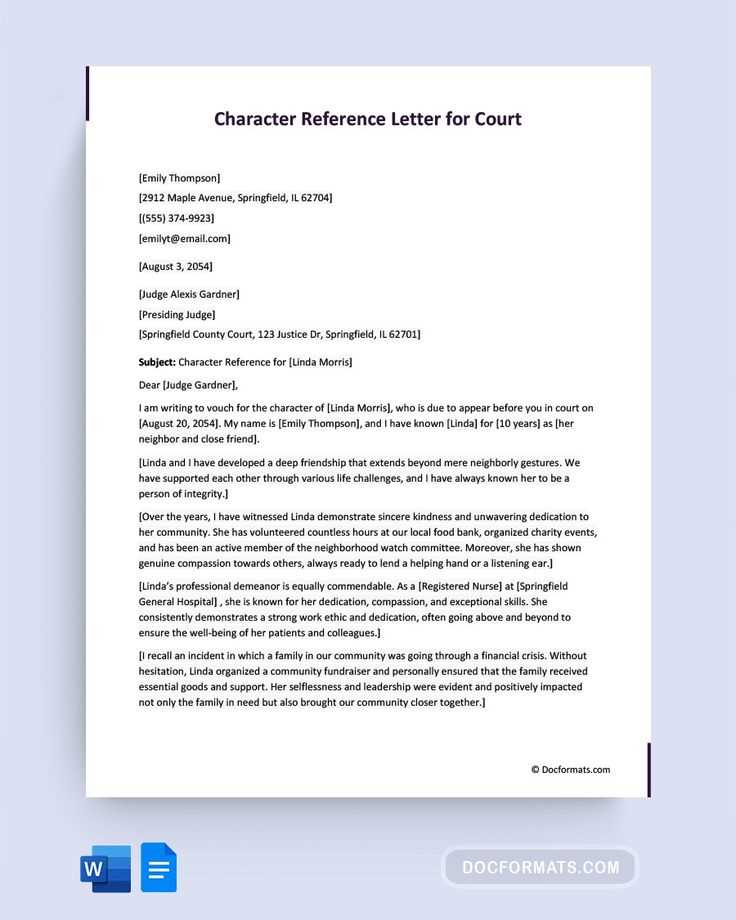
When someone faces legal proceedings, personal support can make a significant difference. A well-written statement from a trusted individual can provide valuable insight into the person’s character and integrity. This kind of document is often requested by the court to help evaluate a person’s standing and history, offering a perspective outside of the legal framework.
To create an impactful and convincing reference, it’s essential to understand its purpose and structure. The focus should be on conveying trustworthiness and highlighting positive qualities, such as honesty, reliability, and respect for others. This type of support can be crucial in legal decisions and may influence outcomes in a meaningful way.
Writing such a document requires careful consideration, attention to detail, and clarity. The goal is to craft a message that is both heartfelt and professional, ensuring it meets the expectations of the legal system while accurately representing the individual in question. A strong reference can provide a powerful voice in the courtroom, helping to shape the case’s resolution.
How to Write a Court Character Letter
Creating a personal reference to support someone in legal matters involves careful consideration and clarity. The goal is to highlight the individual’s positive qualities and provide the court with an understanding of their background. This document can have a meaningful impact on the outcome of a case, so it’s important to approach it thoughtfully and professionally.
Structure of a Personal Reference
The document should be structured to include specific details that make it credible and useful. Here is an outline to follow when drafting the text:
| Section | Description |
|---|---|
| Introduction | Briefly introduce yourself and your relationship with the individual. |
| Background | Explain how long you’ve known the person and in what capacity. |
| Personal Qualities | Describe the individual’s positive traits, focusing on reliability, honesty, and other qualities that reflect well on their character. |
| Conclusion | Summarize your support for the individual and explain why you believe they should be given a favorable consideration. |
Key Tips for Writing
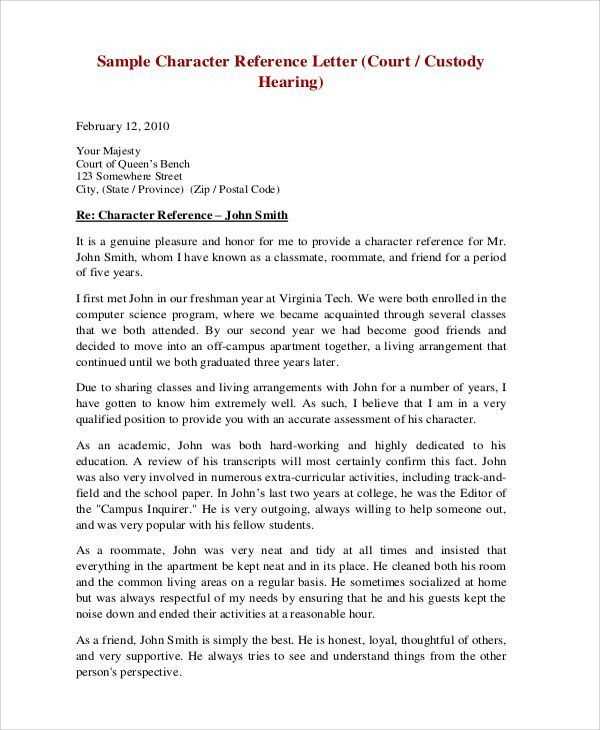
When writing the reference, it is important to maintain a formal tone while being sincere. Avoid exaggeration and focus on specific examples that demonstrate the individual’s character. Providing real-life anecdotes can strengthen your statement and make it more relatable to the court.
Steps to Draft an Effective Letter
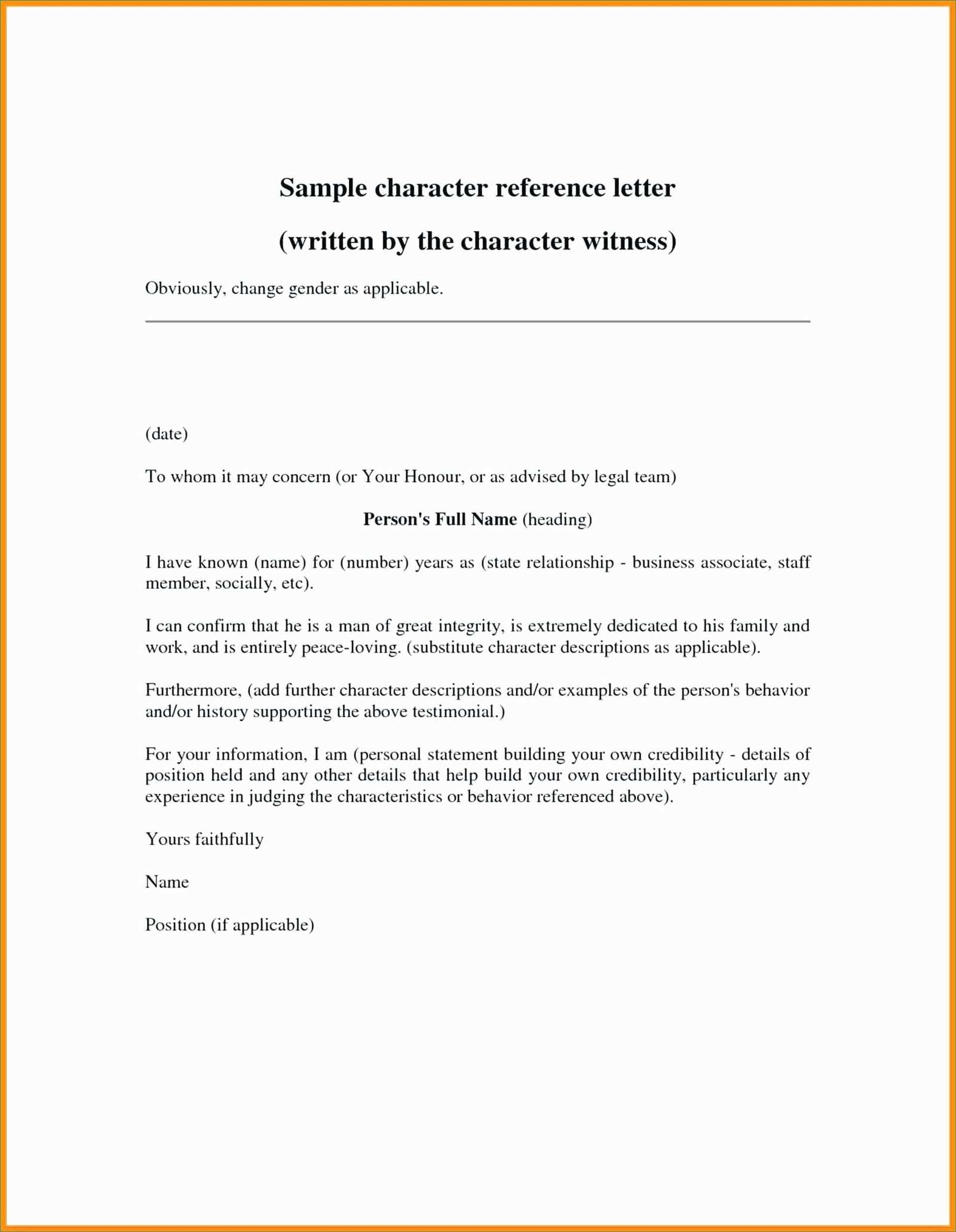
Writing a meaningful personal reference to assist someone in legal matters requires a thoughtful approach. The key is to present a clear and honest portrayal of the individual while ensuring that the document aligns with the expectations of the legal process. Following a structured approach will help convey the right message in an impactful manner.
Start by addressing the recipient of the message properly, indicating your understanding of the purpose of the document. Then, introduce yourself and provide context on how you know the individual and your relationship with them. This helps establish your credibility as a reference.
Next, focus on highlighting specific qualities that make the person a reliable and trustworthy individual. Mention examples that demonstrate their integrity, responsibility, and positive contributions to the community or others. Providing clear and relevant details will make the reference more compelling.
Conclude by reaffirming your support for the individual and the reasons why you believe they should be treated favorably. End on a positive note, offering to provide further information if necessary. Keeping the tone respectful and professional throughout ensures that the document will be taken seriously.
Important Information to Include in the Letter
When drafting a personal reference to assist someone in legal proceedings, it’s crucial to include specific details that will help portray the individual in a positive light. The document should not only express support but also provide meaningful and relevant information that contributes to the individual’s case.
Here are key details that should be included in the reference:
- Your relationship with the individual: Clearly explain how you know the person and the length of your relationship.
- Personal qualities and traits: Focus on the individual’s positive attributes such as honesty, reliability, and kindness.
- Specific examples: Provide concrete instances that demonstrate the person’s character, such as their actions in challenging situations or their contributions to the community.
- Impact on others: Mention how the person has positively influenced others or made a difference in their life.
- Why the person deserves support: Express your belief in the person’s integrity and why they should be given favorable consideration.
Including these elements will ensure that the reference is both detailed and persuasive, making it more effective in supporting the individual during the legal process.
How to Format a Legal Character Reference
When composing a formal statement in support of someone during legal proceedings, it is essential to follow a professional format that meets the expectations of the legal system. Proper formatting not only helps present the content clearly but also adds credibility to the document. A well-organized reference increases the chances of the individual being viewed favorably by the authorities.
Basic Structure of a Reference
The document should begin with your full name, contact information, and date. This establishes the formal nature of the message. Next, address the recipient properly, often using formal titles such as “To Whom It May Concern” if the specific recipient is unknown. Afterward, provide an introduction that briefly outlines your relationship with the person and the purpose of the statement.
Organizing the Main Content
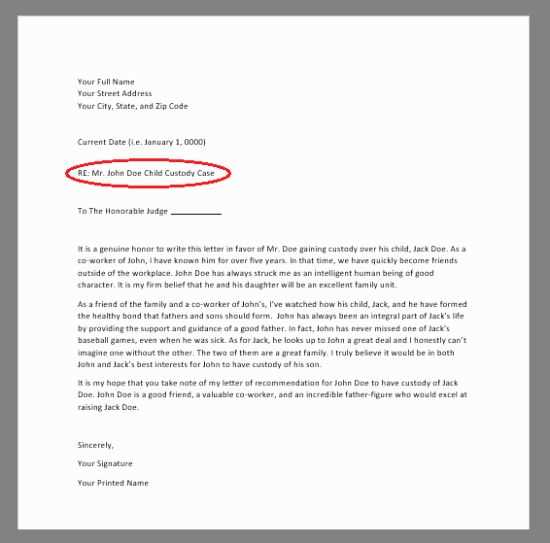
The body of the reference should focus on the individual’s positive attributes. Break down the content into well-structured paragraphs, each focusing on a specific trait or example. Ensure that each section remains concise and relevant to the legal matter at hand. End the document with a strong closing statement expressing your full support and offering additional information if necessary.
Examples of Strong Court Character Letters
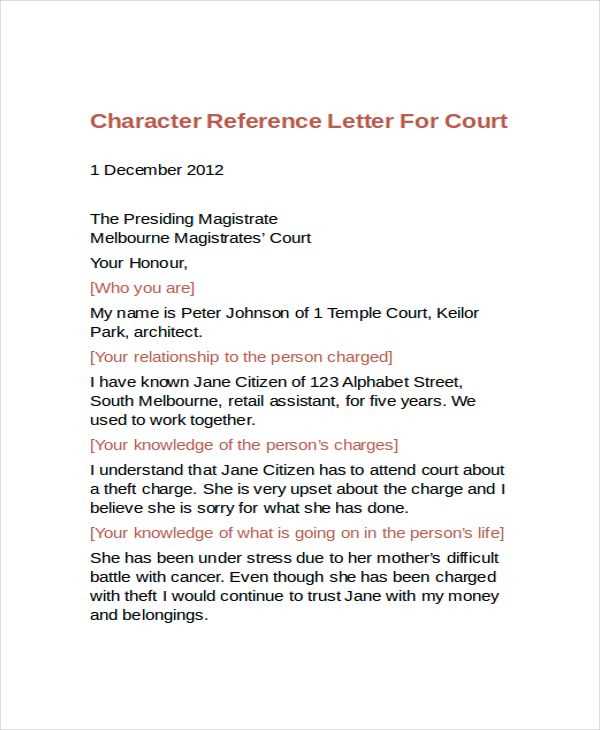
Providing compelling examples is a great way to illustrate how a personal reference can be effectively written to support someone in a legal matter. The following examples demonstrate how to structure and word a reference, ensuring that it captures the necessary details while remaining impactful and credible.
Example 1: Support from a Long-Time Friend
In this example, the writer emphasizes their long-standing relationship with the individual and highlights specific traits like reliability and integrity.
Dear Judge,
I have known John Doe for over 15 years. We met when we worked together at ABC Corporation, and over the years, our friendship has grown stronger. John has always been a reliable and honest individual. He has been an active volunteer in our community and consistently offers his time to help those in need. His commitment to helping others has had a significant impact on many lives.
Throughout our friendship, John has demonstrated incredible integrity, even when faced with difficult decisions. I truly believe that he is a person of high moral character, and I wholeheartedly recommend him for your consideration.
Sincerely,
Jane Smith
Example 2: Professional Reference from a Colleague
This example showcases a professional relationship and focuses on the individual’s work ethic and responsibility in the workplace.
To Whom It May Concern,
As a colleague of Emily Johnson for the past 8 years at XYZ Corporation, I have had the pleasure of working closely with her on numerous projects. Emily has always exhibited the highest level of professionalism and dedication. Her attention to detail and ability to manage complex tasks with precision is unmatched. She has proven to be a dependable team member, and her work ethic is a reflection of her strong moral values.
Emily has consistently shown respect for others, maintained a positive attitude, and taken the initiative to mentor newer employees. I have no doubt that her character will be of great benefit to any legal considerations.
Best regards,
Michael Brown
Tips for Making a Persuasive Statement
Crafting a convincing message requires a strategic approach. The key to persuasion lies in clear, focused communication that highlights key qualities while supporting them with concrete examples. By presenting your points logically and emotionally, you can create a strong impact on the recipient.
1. Be Clear and Direct
To make your message effective, it’s crucial to stay focused and concise. Avoid unnecessary information or vague statements that could dilute your main points. Be clear about what you’re supporting and why, and keep the tone respectful and professional.
- Avoid jargon or overly complicated language.
- Stick to the main points relevant to the case.
- Maintain a calm and composed tone throughout.
2. Use Strong, Relevant Examples
Backing up your statements with specific examples is an essential step in convincing the reader of your position. Real-life experiences help paint a vivid picture of the person’s qualities, which gives weight to your argument.
- Share instances that showcase the person’s positive attributes.
- Relate these examples to the situation at hand whenever possible.
- Be honest and genuine in your examples to maintain credibility.
How Court Letters Influence Legal Outcomes
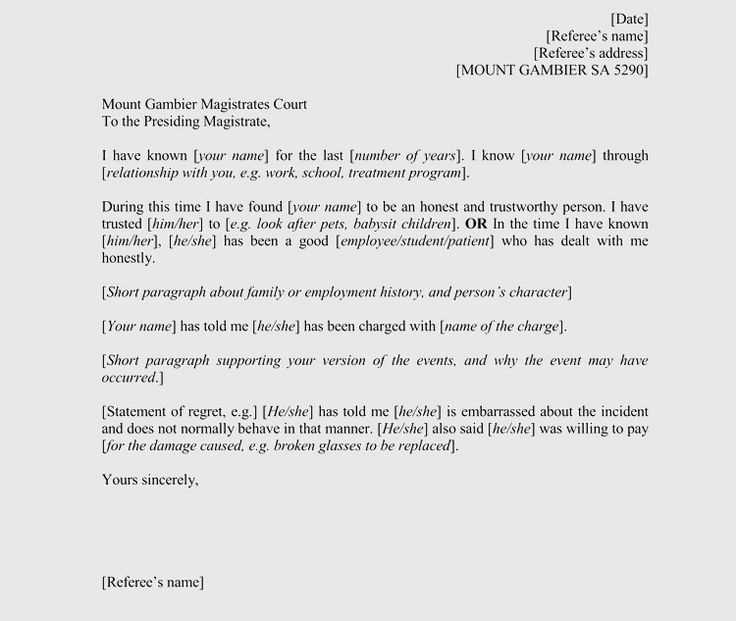
Personal references can have a significant impact on legal proceedings, offering insight into an individual’s character and actions. These submissions are often used to support or mitigate decisions made during legal cases. While the ultimate decision rests with the judge or jury, these documents provide valuable context that may sway the outcome by demonstrating the individual’s positive traits or the circumstances surrounding their actions.
Emotional Appeal and Credibility
One of the primary ways these documents influence outcomes is through their emotional appeal. When written effectively, they humanize the individual, helping to create a fuller understanding of their personality, intentions, and behavior. This is particularly important in cases where character or past behavior is being evaluated.
- These submissions offer a broader perspective on the individual.
- They can evoke empathy, influencing the decision-making process.
- The credibility of the writer can strengthen the message’s impact.
Supporting Mitigation or Advocacy Efforts
In certain legal situations, personal references are used to advocate for leniency or provide mitigating factors. They are often submitted in cases involving sentencing or probation hearings. By showcasing the individual’s positive qualities, the document can help demonstrate that they are deserving of a second chance or a more lenient punishment.
- References can advocate for reduced sentences or alternative punishments.
- They highlight positive changes or personal growth over time.
- In some cases, they help establish a pattern of good behavior.